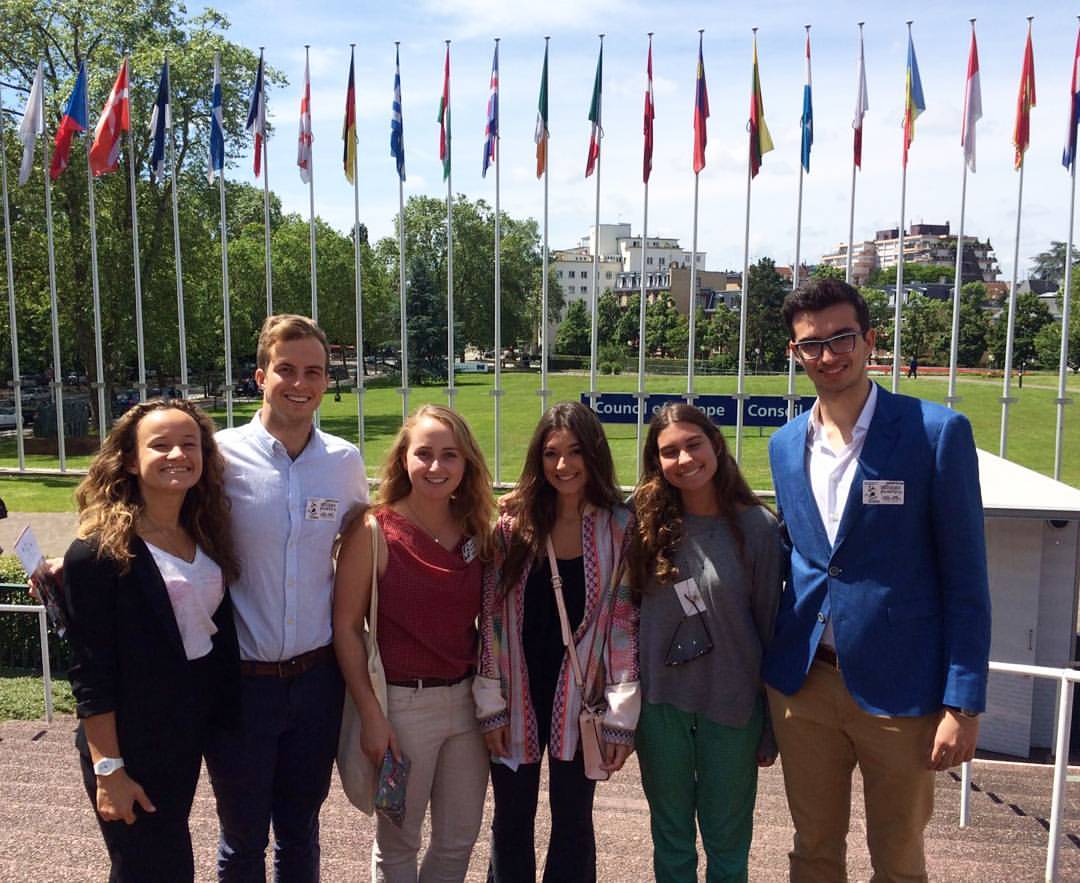Pre-departure:
After hearing about my friend Karin’s summer school experience in Strasbourg, France in 2015, I simply couldn’t resist trying my luck as well.
First, you need to complete an online form containing personal details and a CV. Then you need to get a reference from a lecturer and put together a video. The catch is that the application is due early in March, slap bang in the middle of all your tests and assignments, so it would be a great idea to start early. It is also important to plan what you want to say and visualise your video beforehand.
My first choice was to go to France, so I bought a baguette to use as a prop in the video (cliché I know, but I like to think it added visual character to the video and created a little humour). I put it in the basket of my bicycle as I rode down Victoria Street. I convinced my friend Frances to film the whole spectacle with her camera and later I added some upbeat French music in the background. As the music fades, I get off my bike and, while stroking the French loaf, I introduce myself in French. Then I said something in Dutch (mostly Afrikaans with a wannabe Dutch accent) since the Netherlands was my second choice. The rest of the dialogue takes place in the Botanical Gardens, which is a beautiful and tranquil setting to shoot a video. The editing is the hardest and most time consuming part of the exercise. I handed everything in electronically and visited SU International just to double check whether they had received my application. The long wait was finally over when I got the call form Sarah – I was accepted!
Once SU International paid the travel bursary into my account, I started looking for cheap flights to Paris. Since the bursary is worth R17 500, it would make sense not to exceed this amount. I made use of the travel agency Flight Centre and in the end, my Emirates return flight including a few stopovers cost about R10 000. You can also buy your travel insurance from the agency. Luckily I already had a three-year Schengen visa so I didn’t need to go through that process.
The next thing I did was to exchange money at the bank and load Euros onto a Cash Passport. The Cash Passport works like a debit card and the account is separate from your other account. You can view your purchases online. In retrospect, one thing I really wished I had while overseas is a credit card. It really comes in handy when you want to book train and bus trips online.
The nice thing about the bursary is that they do not dictate when you should go or come back – as long as you actually attend the summer school. Since my exams ended early, I arranged a week long job shadow at a bank in Paris before the summer school started, while I stayed at the Generator Hostel in the 10th arrondissement. My week at the public relations and branding office at BNP Paribas was a great learning experience, especially in terms of getting acquainted with the French corporate environment and improving my French on a professional level.
Last minute tips before you leave:
- Roll your clothes instead of folding them. You will have a lot more space left in your luggage but remember that the weight will remain the same. Be sure not to pack more than your airline’s weight limit and keep in mind that the sales will be in full swing in Strasbourg…
- Buy a portable luggage scale. I have no idea what they cost but all I know is I wished I had one. Luckily I could borrow one from a fellow student just before I left Strasbourg for SA to ensure I wouldn’t have to open my luggage I front of everyone and take stuff out at the airport, had it been too heavy.
- Take an umbrella! Karin told me to buy a fan the moment I set foot in Strasbourg as the summer heat would be unbearable and soon all the shops would run out of stock. However, the weather was totally different and unpredictable this year and although there were a few hot days, the need for a foldable umbrella was much stronger.
- Make sure your phone has a step counter and download an app if it doesn’t because when (and not if) you walk 23km you will want to know it and you will want the proof for bragging rights’ purposes.
- Pack a diary. It doesn’t have to be something pink and fluffy with a lock – it can be a simple notebook. You’ll have so much fun that it will become difficult to keep it up, but try to write at least every second day. You’ll thank yourself later.
- Try learning a few French words and phrases beforehand. Duolingo is a great app for this purpose. Even knowing a bit of German will get you further than English, especially in the Alsatian region.
- Check out some of the events that will be held in nearby towns or cities (or even some neighbouring countries). Some event tickets will be cheaper when you book them well in advance but I would recommend that, unless you are dead sure, you don’t book them. Keep these events in mind once you arrive – you will meet people who might want to go too, or they might convince you to go on a whole different trip with them.
- Remember your sense of adventure and be ready to try anything and everything (and by this I mean anything legal. Like food).
The Residence:
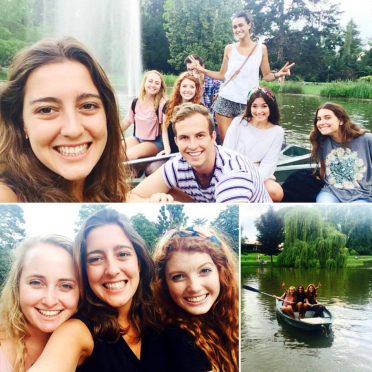
We all stayed in La Marne Residence, which is right behind the school building. This would have been convenient, had it not been for the construction at the school, which meant that for most of our classes we had to walk to the Leicester building a few blocks away. You can choose between a single and a shared apartment. I would say it’s better to share since it’s not only cheaper, but you also get to know someone from a different culture – and building relationships is all part of the experience. Many friendships are also forged thanks to the lack of cutlery, crockery and cooking utensils. Our circle of friends (two South Africans and five Spaniards) put together what we had in one kitchen where we cooked and ate together every day. We visited the Simply supermarket behind the residence on a regular basis and made our own food.
In terms of WiFi, there is a MyNeo network available in the building for 20€ per month. But be sure to check out possible sim card packages and specials of mobile networks such as Orange.
Bikes (yikes!) and other transport:
Strasbourg is considered the most bicycle friendly city in France and boy do the cyclists know it! They would ring that bell without a second’s hesitation should you even consider walking in their lane. Even where there aren’t bicycle lanes they would charge at you and hoot for you to get out of the way. If you wish to flip the power dynamic and be on the other side of the bell, you can hire a bicycle for about €25 for the month. You will, however, need a credit card and enough money to pay a deposit. Most, if not all of the people in our class walked anyway.
Since we arrived in the middle of the month we couldn’t make use of the monthly travel card, which would have included unlimited tram and bus rides inside the city (hence the many steps counted). Remember to validate your tram ticket. It might seem like a great idea to take the “free tram” because no one seems to check, but those scary officers will pounce on you when you least expect it.
Classes at EM Strasbourg:
The course is very interesting, with Business in Europe and European Integration, teaching you about the Alsace region and all the institutions situated in Strasbourg. We had to do a project on Abercrombie & Fitch and its notion of not only selling a product but selling an experience. We also did a presentation on starting a branch of a fictional company in a given country and we had to say how we would integrate the country’s culture and specifically their working culture with that of our company. The group is also split into two for French classes – one for beginners and the other for intermediate students.
Then there are the trips arranged by EM Strasbourg. We went to the Mercedes factory in Rastatt, Germany, we visited a medieval castle, the Alsatian Museum, we did a wine tasting and went to the Council of Europe and the European Parliament. We were there during Brexit, and we could listen to the debates on integrating immigrants into the labour force in 24 different languages.
Leisure activities and trips:
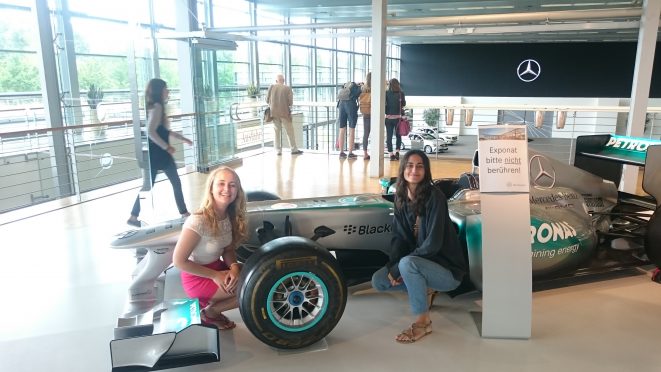
On weekends you get to do whatever you want. We made a trip to Basel in Switzerland (yes, your Schengen visa is valid there and although their currency is Swiss Franc, it is possible to pay in Euro). I would recommend a daytrip to Switzerland instead of a weekend trip, and to take a packed lunch if you don’t want to spend a small fortune on McDonald’s (if you thought France is expensive, you have yet to experience Switzerland). We also visited Heidelberg and Freibourg in Germany – which is beautiful and a lot cheaper. Colmar is a picturesque little town in France and definitely also worth a visit. Our group of friends also went to the Eurokéene rock festival in Belfort where we slept in a tent.

I would recommend buying a Carte Jeune for under 25s at the station upon arrival in France – especially if you know you’ll make use of trains a lot. It costs about €40 and will give you discount upon the purchase of any train ticket in France (e.g. my ticket from Lille to Strasbourg cost €54 instead of €106). A bus ride would definitely be cheaper than a train, but it would also take more than double the time to get to your destination.
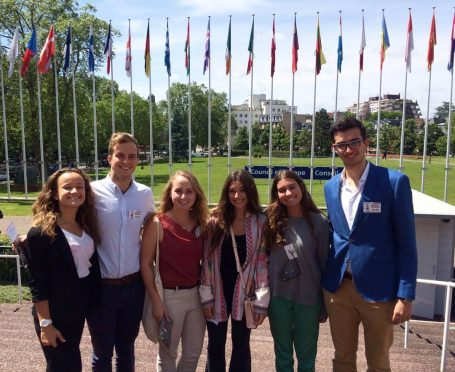
For train and bus trips, remember to book and pay in advance. Train prices change all the time but are cheaper the earlier you buy them. It is possible to buy bus tickets from the bus driver before you get on, but it would probably cost you three times as much as the online price and then there is the possibility of all the seats being taken already.
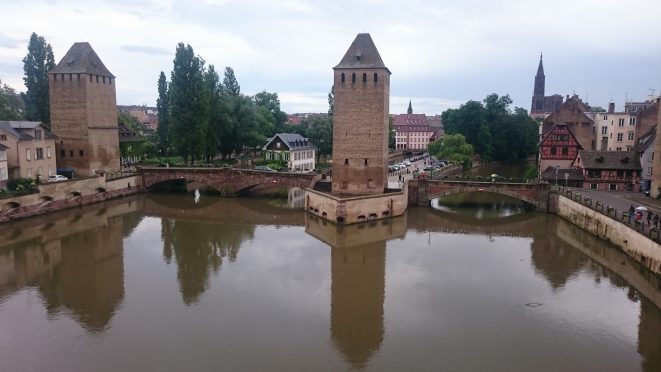
In Strasbourg we went rowing on a lake in the park, we went swimming at the public swimming pools, attended the Fête de la Musique and I even joined my Spanish friends for mass at the cathedral. We were in France at the time of the Euro Football championships and we often went to the Irish pub to watch the matches where we cheered for Spain at the top of our lungs and sung “Yo soy espagnol” as convincingly as we could. The Barco Latino (Latin Boat) proved to be great fun. Who would have thought you’d find South Africans dancing a sokkie/salsa variation in the hull of a boat on a canal in Strasbourg?
Return to South Africa:
After a week in Spain (Sol, one of my new friends invited me to her home after the summer school) the return to South Africa was like reluctantly waking up from a dream. Suddenly I had to drive everywhere, people around me speak languages I can understand, they eat eggs for breakfast (it’s not a thing in France and Spain) and this is the worst part – it’s WINTER!
I was great seeing my family again. This trip sure has made me realise how much I appreciate my parents and everything they do for me. I am grateful for the values they have taught me – of which tolerance and empathy are probably the most important. I learned that you can appreciate people with different mindsets, ideas and beliefs without seeing it as a threat but rather as an opportunity to broaden your horizons and enhance your perspective of the world.
You start to realise your own role of representing South Africa in an international context. You are now that one South African that your classmates will get to know and their idea about South Africa and South Africans in general will be based on your behaviour and what you tell them. Frightening, really. Also, you might feel negative about South Africa sometimes but when you go out into the world and meet people from other countries they will tell you they have the same type of problems. After this experience, I definitely see myself working in an international context and I think the skills I gained would most certainly help me in the future.
I think if you go there with set ideas about what you want to learn and experience, you will be disappointed. But if you open yourself up to learning on all levels – from interpersonal, to language and culture skills you will be greatly rewarded. I thought I would learn a lot of French, for example since, well, I was in France, but it turned out that I learned more Spanish than anything else. A whole new unexpected opportunity.
If you go in with the right attitude and if you’re willing to see the funny side of every situation, you will truly have the time of your life.

